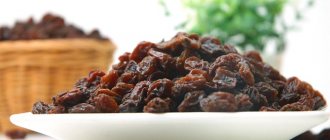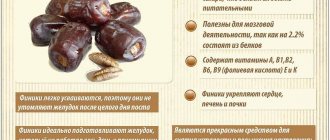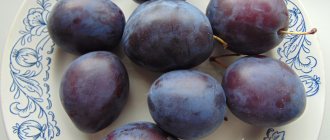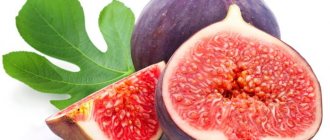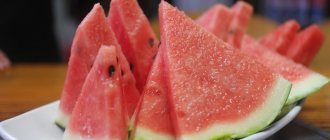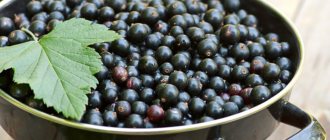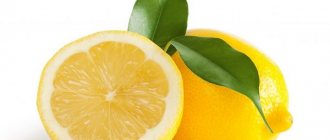Many breastfeeding women want to include some sweet treats in their diet. However, this opportunity is often absent due to the need to follow a strict diet during the lactation process. Despite strict dietary restrictions, it is advisable to carefully study the issue of foods that turn out to be desirable after childbirth.
Rules for introducing dried fruits
All dried fruits can be introduced into the diet during breastfeeding from the 3rd week. Compote can be cooked after the first week of breastfeeding. The first portion should be small, then the child’s condition should be monitored for two days. If no rash, diarrhea, or vomiting is detected, then you can increase the amount of fruits eaten.
If allergic reactions occur, the new product should be postponed for a month. And only after that try again. You cannot eat several types of dried fruits at the same time. The intervals between different types should be at least 3 days.
Dried fruits should not be overused. Exceeding the recommended dosage can lead to abdominal pain in the baby, increased formation of gases, diarrhea and allergies.
Before eating dried fruits, they must be thoroughly washed and doused with boiling water. In addition to compotes, they can be added to various dishes: pilaf, porridge, meat, salads.
How to cook at home
In order to enjoy natural candied fruits, you do not need to go to the store and purchase a dubious product. The process of making these natural confectionery products is in many ways similar to the technology for making jam. Natural fruits are used to make candied fruit slices.
To prepare the dish, sugar syrup is prepared in advance, into which sliced fruit is dipped. Boil candied fruits until the candied state is visible. The average production time is 1-2 hours. Boil the fruit slices over low heat, making sure that the sugar syrup does not burn or caramelize.
After the fruit slices have reached the required condition, they are placed in a colander and cooled for 40 minutes. After the fruit slices have gotten rid of the remaining sugar syrup, they are placed on a metal baking sheet covered with parchment and sent to the oven for 10 minutes at a temperature of 40 degrees. The finished product is packaged in cellophane or paper bags, after which it is used as an independent dish or for making desserts and baked goods.
Before including this product in the diet of a nursing woman, every young mother should consult a medical specialist.
Date palm fruit
Dates will benefit breastfeeding due to the content of microelements, vitamins, proteins and amino acids. They have antibacterial and diuretic properties, contain only 0.5% fat and about 90% carbohydrates (natural sugars that give energy and vigor). 100 g contains only 250 kcal.
- Dates improve blood condition and replenish large blood loss.
- Improves lactation. This is due to the fact that the fruits promote the production of the hormone oxytocin.
- Magnesium and calcium contained in dates help strengthen tooth enamel and the entire skeletal system as a whole.
- The fruits of the date palm calm the nervous system, improve sleep, and can relieve insomnia.
- Stimulates brain function.
- Dates activate the production of serotonin, which will help fight postpartum depression. Mood improves, vitality increases.
When breastfeeding, a woman should start eating dates with one berry, gradually increasing the portion. It is imperative to monitor the reaction of the baby’s body. If the baby has consumed this new product through breast milk, you need to take into account that the mother cannot eat more than 5 dates a day.
Dates should be consumed with caution in case of inflammatory processes in the digestive organs and diabetes mellitus.
Fresh, quality dates should have a slightly shiny appearance. They are smooth to the touch and slightly wrinkled. You should not eat berries covered with mold or sugar.
The benefits and harms of candied fruits
The beneficial properties of any candied fruit are associated with the composition of the fruits or even vegetables from which they were made. In fact, the composition includes a large number of useful vitamins and microelements. In addition, proper preparation of such delicacies helps to preserve the beneficial properties that are characteristic of fresh vegetables and fruits.
The presence of the following beneficial substances is often noted:
- Magnesium;
- Iron;
- Calcium;
- Phosphorus;
- Potassium;
- Vitamins A, B, E, C, PP, K.
The products also contain proteins, carbohydrates and amino acids.
It would seem that the composition should be rich and useful. However, the high caloric content must be taken into account.
It is advisable to avoid those products that are made from fruits that have a high degree of allergic activity:
The above fruits contain highly allergenic chemical compounds that can cause unwanted allergic reactions.
It is important to note that for those women who are diagnosed with diabetes, eating sweets becomes impossible.
When choosing products, it is advisable to remember that many unscrupulous manufacturers often include chemical additives, flavor enhancers, dyes, and flavorings that are supposed to improve the appearance and give a special aroma to the food. However, such products are strictly prohibited for nursing mothers, so it is best to completely abandon this option. If you want to focus on the beneficial properties, it is advisable to take care of preparing the dessert at home.
Dried apricot fruits
Dried apricots are also recommended during breastfeeding, as they compensate for the lack of minerals, vitamins and other beneficial substances. Contains fiber, organic acids, carbohydrates. The fruit will replace a sweet dessert and will not affect your weight in any way. This is a low-calorie product; 100 grams contain only 200 kcal.
- Dried apricots improve the functioning of the digestive system and prevent constipation.
- It has a beneficial effect on kidney function, removes excess fluid from the body, and cleanses toxins.
- Dried apricots stabilize the nervous state.
- Reduces blood pressure.
- Increases hemoglobin.
- Magnesium normalizes blood pressure, so dried apricots are indicated for high blood pressure.
Dried apricots are difficult for the baby to digest during breastfeeding. It should be introduced into the mother’s diet no earlier than 3-4 months after birth. It is best to prepare compotes or desserts with the addition of these fruits.
Dried apricots contain more fiber, so consuming them in excess leads to digestive disorders, increased gas formation and colic.
In the case when a nursing woman has low blood pressure, you should not eat more than 50 grams of dried apricots per day.
If the child does not have an allergic reaction, then you can eat about 100 grams of the product daily, but no more.
Can a nursing mother eat candied fruits?
Many young mothers after the birth of their children face a serious lack of glucose. This is not surprising, because every woman spends an amazing amount of energy to produce milk and feed her baby. Depleted reserves of the body always require mandatory replenishment. The easiest option for replenishing energy is eating sweets.
Experts assure that desserts are not only a source of calories, but also an opportunity to get positive emotions. This is due to the fact that a large amount of carbohydrates leads to the active production of serotonin, which is responsible for a good emotional state. Serotonin helps eliminate irritation and fatigue, making women cheerful and positive. This effect on the female body turns out to be extremely important in the first time after the birth of the baby.
However, eating sweets turns out to be potentially harmful. The risks are as follows:
- A large amount of carbohydrates turns out to be a serious burden for the child’s body, which reacts very sharply to the mother’s nutrition. For this reason, there is an increased risk of colic, gas, bloating and other problems with the digestive system;
- Sweets often lead to the development of allergies in children. This is due to the imperfection of the children's immune system;
- Many manufacturers use harmful additives in the manufacture of their products, which include preservatives and dyes. Such ingredients can lead to food poisoning in infants.
It is important to understand that excessive indulgence in desserts will negatively affect the health of the mother herself. There is a risk of developing diabetes mellitus, caries, extra pounds and obesity. For this reason, only moderate consumption of treats can eliminate unwanted health risks.
Despite the potential risks, it is still possible to indulge in sweets. The main task is to choose the right products and use them carefully.
Dried plum fruits
Prunes during breastfeeding will enrich the body with fiber, potassium, and iron.
- Prunes have a laxative effect, relieve constipation and normalize the functioning of the digestive tract.
- Fruits increase hemoglobin and fight anemia.
- Thanks to prunes, the heart muscle is strengthened and the functioning of blood vessels is improved.
- Prunes improve skin condition.
- This dried fruit normalizes blood pressure balance.
- Prunes strengthen vision due to vitamin A.
- It has a diuretic, choleretic and antibacterial effect.
Eating prunes in large quantities can lead to stool upset and allergies. It is not recommended to introduce the product before 3 months
You can make compote from prunes, you can use them raw as a snack or add them when stewing meat.
Prunes are a high-calorie product. This should be taken into account by a woman who has gained extra pounds during pregnancy and if the baby is prone to excess weight.
Fresh fruits should have a black color and a matte surface. Berries that are too hard or soft will not be beneficial because they were dried incorrectly or the rules for storing them were not followed.
Dried grapes
Raisins include useful components such as sucrose, lactose, organic acids, trace elements and vitamins. When dried, grapes retain their beneficial properties much longer. The energy value of 100 grams of raisins is about 300 kcal.
Raisins during breastfeeding can have the following beneficial effects on the body:
- increases immunity;
- relieves stress and nervous tension (due to the high content of B vitamins);
- the boron content in dried apricots ensures the production of vitamin D in our body, which in turn prevents the occurrence of rickets;
- nicotinic acid eliminates problems with sleep disorders;
- increases hemoglobin, thereby fighting anemia (due to iron and magnesium content);
- activates brain function;
- strengthens the heart and blood vessels (potassium helps with this).
But raisins should be consumed with caution. There is a high risk of intestinal colic in the baby. Allergic reactions often appear in the form of a rash. Do not introduce raisins before 2 months.
If you know the basic properties of dried fruits and the rules for introducing them into the diet, then you can only bring benefits to your child’s body. You also need to take into account the baby’s health status. To avoid mistakes, it is best to consult a doctor about what form and quantity to start eating fruits.
